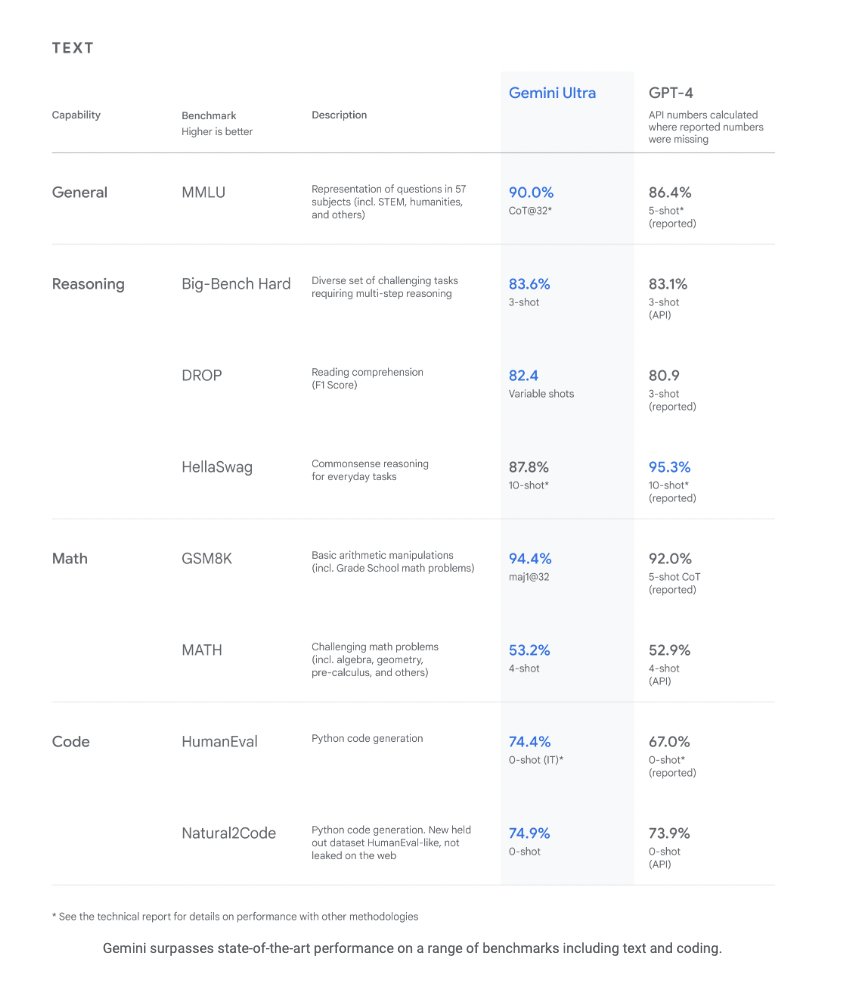Amidst the sprawling digital empire of Alphabet, the sleeper has finally awakened. Google and search have long dominated as the Internet's paradigm for discovering humanity's exponentially-expanding online knowledge. Yet emerging large language models now grant users conversational access to information, threatening search's role as the definitive retrieval system. Ironically, Google now faces the risk of being rapidly deprecated by the very forces it enabled.
The threat stems not only from rival companies, but from radically evolving user behavior and competitive frontiers. As AI delivers more contextual, conversational results, the traditional search query looks increasingly antiquated.
The existential stakes revolve around changing user expectations. As language models become more sophisticated conversation partners, they offer a glimpse into a future where information is interacted with rather than searched for. This revolution puts Google in a delicate position - tasked with balancing pioneering the future while preserving search's legacy.
This shift promises a profound reshaping of data flows underpinning Google's business model. The meteor strike forces Google to mount an existential defense of its crown jewel for the first time. To thrive for the next 20 years into an age of intelligence both artificial and augmented, Google must reclaim its role as the deepest pioneer defining what comes next, not merely perfecting the last era.
Yet Google's history is one of adaptability amidst change. The open question is not whether Google can respond, but whether it will transform search into an AI-driven platform that moves beyond information retrieval. Or forge entirely new offerings transcending traditional notions of search.
As generative AI proliferates, one of Google's biggest untapped opportunities sits in pioneering attribution systems so creators get fairly paid as algorithms utilize their work. The high-profile New York Times lawsuit against Copilot highlights this emerging pain point - creators won't tolerate unpaid appropriation.
Google, with its unparalleled data infrastructure, vast talent pool, and deep-rooted relationships within the creator community, is uniquely positioned to lead the charge in crafting attribution models that address this complex issue. The company has the resources to architect systems that not only recognize but also remunerate the original creators of text, images, video, and other forms of content that power the engines of AI. Such a move would not only fortify Google's standing as a steward of ethical AI development but also catalyze a broader industry shift towards more sustainable and fair practices.
The urgency for these systems stems from the dual realities of copyright law and the ethical imperatives of the digital age. As AI technologies become increasingly adept at generating content that mirrors human creativity, the lines between original creation and algorithmically generated content blur, raising critical questions about ownership, copyright, and compensation. By leading the development of sophisticated attribution models, Google can set new industry standards that ensure creators are recognized and rewarded for their contributions, thereby fostering a more equitable digital economy.
This initiative could redefine Google’s role in the AI domain, shifting from a provider of search and advertisement services to a leader in ethical AI commercialization. By leveraging its relationships with creators and its technological prowess, Google can create a marketplace where copyrighted materials are not only protected but also serve as assets that contribute to the thriving economy of AI-generated content. Such a move would not only open new revenue avenues for Google but also for millions of creators worldwide, creating a more vibrant and sustainable ecosystem for digital content creation.
In essence, by leading the charge in developing sophisticated attribution models, Google can capitalize on the burgeoning demand for fair use practices in AI, turning a complex problem into a profitable solution. This venture not only promises to enhance Google's profitability but also to pioneer a new frontier in the ethical and equitable commercialization of AI technologies.

Just as Google aimed to organize the world's information, it can organize proper AI accreditation. By listening to creators and proactively designing mechanisms that enable compensation for value generated, Google can avoid punitive externally-imposed mandates while also creating a new content ecosystem.
But the window of opportunity might begin to shut as frustration mounts over perceived inaction. One of the greatest risks is silence and opacity now that generative AI has been uncorked. Leaning into attribution provides a chance to cement bonds with media partners rather than alienate them. Google should urgently surface its undoubtedly sophisticated internal deliberation to rally stakeholders around the principles and frameworks for sharing AI prosperity.
Revitalization starts by airing hard truths. Google has the talent, research, capital and capability to pre-empt upheaval. But inspiration has stalled under the current regime. Politically fractured fiefdoms also abound unchecked as oversight lags and priorities blur. Moonshots landing primed talent now see their output delayed or dispersed amidst layers of bureaucracy.
Demoralization has set in as voices go increasingly unheard. It takes vision, empathy and convictions to continually rally teams towards shared conquests. But ambiguity prevails as critics question why they should try when the next re-org can undermine years of toil for the sake of toil alone. As search revenues soften, the best talents could inevitably present their resumes elsewhere.
Protecting a bright future requires acknowledging the innovation mantra has waned and must now get supercharged anew. The valley titan's best days remain ahead, but only with determined leadership realigning efforts to user needs and breakthrough velocity over politics and incrementalism.

Despite the looming existential threats, Alphabet as a company is doing very well, delivering both a revenue and earnings beat in it's latest quarter. The beats were not enough to avoid a severe beating however on the slightest whiff of softening revenues in the search business.
Sundar Pichai has delivered on growth and earnings at the helm of Alphabet's sprawling, complex technical empire, but the stock languishes. In the 12 months from the date of this post, GOOGL was up just over 40%, almost exactly the same as the Nasdaq 100. The relative performance of the Four Horsemen of AI, META, AMZN, MSFT, and GOOGL tells the story.

We are left to wonder if Pichai is aggressive enough at this stage. After all, OpenAI did emerge under Pichai's watch, and the company was clearly taken off guard by its overnight success. Worse, he let Satya and Microsoft claim the lead in the race Google started.
Which begs the question, is OpenAI and Microsoft really ahead? Technologically, I am quickly coming to the opinion they are not. Indeed, a handful of engineers at Mistral were able to catch up to GPT quite handily in just a few months, and Google's latest Gemini-enabled Bard is basically there in the latest benchmarks:

Obviously, OpenAI and Microsoft are currently ahead from a productization and user standpoint, and no doubt the integrated experience with Microsoft's developer ecosystem tools will be just superb.
Both Microsoft and Amazon's strong developer ecosystems have been a persistent frustration for Google, stalling throughout the Great Cloud Wars, and new traction with developers from either could further stall Google's cloud growth.
But when it comes to AI, Google has been working on this problem much longer, has access to more and better data, and let's not forget, is still the dominant information system of the Internet.
In fact, Google is almost certainly well ahead technologically, but has been lagging in productization. As Google continues to unveil it's myriad of productizations this year, I speculate the result will be shock and awe.
There are some clues embedded in the excellent 2023 State of AI report by Air Street Capital, in which the researchers showed that Google dominates AI research citations, as well as currently deployed infrastructure:

Firstly, Google is the clear leader in terms of research publication and citations. Dig into these citations and it quickly becomes clear Google is the primary progenitor of the current wave of AI (especially transformers), advances by OpenAI and others notwithstanding.

Secondly, while OpenAI, Facebook, and others have announced their intention to purchase and deploy large numbers of Nvidia H100s, Google had the largest number already deployed. That is to say nothing of TPUs (tensor processing units), the specialized ai-accelerator ASICs Google invented and has deployed throughout its infrastructure. Google has not said exactly how many TPUs it owns, but as of early 2023 at least two generations of TPUs were deployed in 7 Google data centers.

Lastly, when we look at capex spending on AI by cloud providers in 2023, Google is at the head of the pack, but was forecast to be outspent by Microsoft. That will almost certainly change in 2024. In its most recent earnings call this week, Google executive Ruth Porat stated:
"With respect to CapEx, our reported CapEx in the fourth quarter was $11 billion, driven overwhelmingly by investment in our technical infrastructure with the largest component for servers followed by data centers. The step-up in CapEx in Q4 reflects our outlook for the extraordinary applications of AI to deliver for users, advertisers, developers, cloud enterprise customers and governments globally and the long-term growth opportunities that offers. In 2024, we expect investment in CapEx will be notably larger than in 2023."
From the just-released annual report, Alphabet points out it has been building AI into its products and services for over a decade. Google's AI is now used by billions through features like autocomplete suggestions in Google Search, translation in Google Translate, and organization in Google Photos. A summary of initiatives from the report:
- Alphabet believes AI can help solve major challenges like accelerating new vaccines and advancing cancer drug discovery. For example, DeepMind's AlphaFold system helped solve a 50-year protein folding challenge in 2020.
- Alphabet is focused on giving helpful AI features to users and customers as AI continues to improve rapidly. With a bold yet responsible approach guided by its AI Principles, Alphabet aims to make AI safe and beneficial.
- Alphabet launched its Gemini model in 2023 - its most capable and general AI model yet. Gemini was built to understand and operate across different data types like text, images, video etc. Teams across Alphabet will leverage Gemini and other models.
- Google Cloud offerings help organizations stay at the forefront of AI innovation with AI infrastructure, platforms, world-class models, and assistive agents.
- Google is embedding the power of generative AI across products to help users express themselves and get things done. Examples include Duet AI in Google Workspace and Dream Screen for YouTube Shorts.
- Alphabet brought part of Google Research and DeepMind together in 2023 to form Google DeepMind, significantly accelerating progress in AI. This group is focused on shared AI R&D.
Alphabet's journey through the evolving AI landscape has reached a pivotal juncture. The company’s demonstrated awareness of AI’s transformative potential must now be matched by a shift from contemplative strategy to assertive, market-leading action.
The introspective incubation of technology and ethical considerations, while vital, must give way to proactive dynamism. As generative AI reshapes the digital terrain, Alphabet is called upon to emerge from its reflective phase, shed any vestiges of complacency, and vigorously reclaim its role as a trailblazer.
In doing so, Alphabet is positioned not only to safeguard its realm but to navigate and set the course for an AI-centric future that continues to redefine innovation and value creation. The imperative is stark: Alphabet must mobilize its considerable assets, hone its focus, and advance with the decisive urgency that the current technological upheaval commands. Despite the challenges, and this week's merciless beating, I am still a believer in Alphabet's capacity to awaken fully and come back to win this round of the AI race.
Disclosure: Hey! As of the date of this article I currently own Alphabet (GOOGL) securities or financial instruments, please be sure to read these important disclosures.







